Find Help
More Items From Ergsy search
-
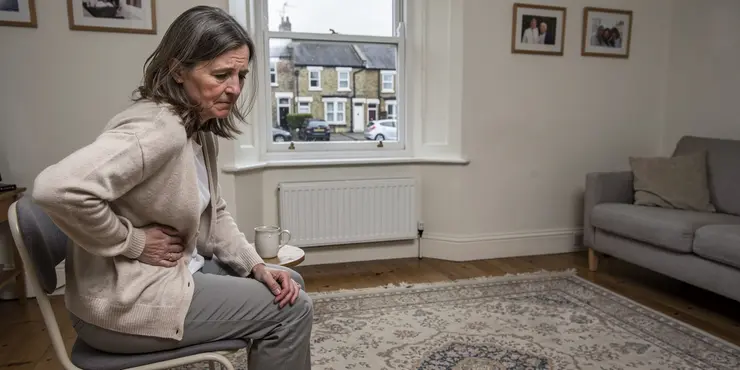
Osteoarthritis of the Hip
Relevance: 100%
-
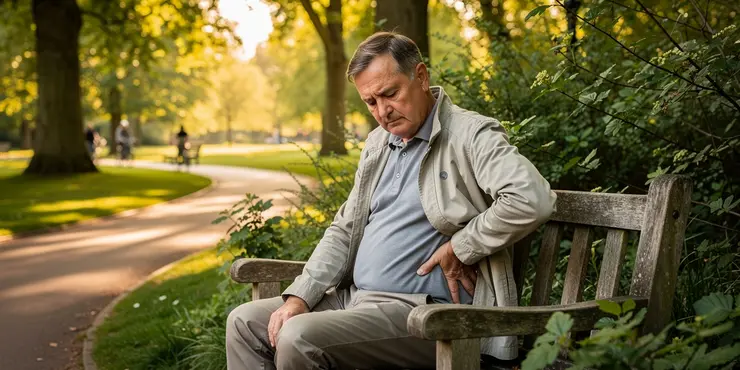
Osteoarthritis of the Hip
Relevance: 99%
-
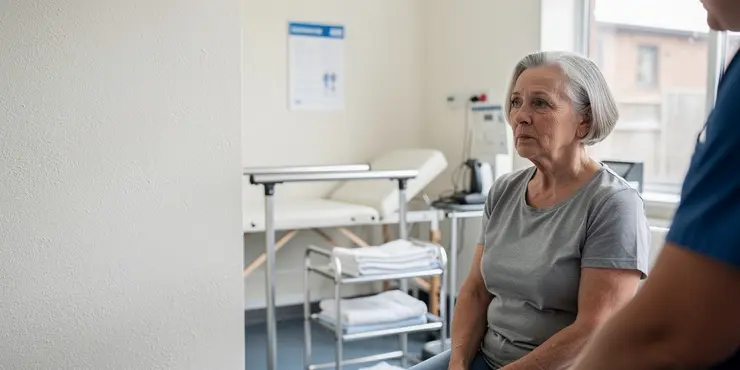
Osteoarthritis: Elaine's story | NHS
Relevance: 60%
-
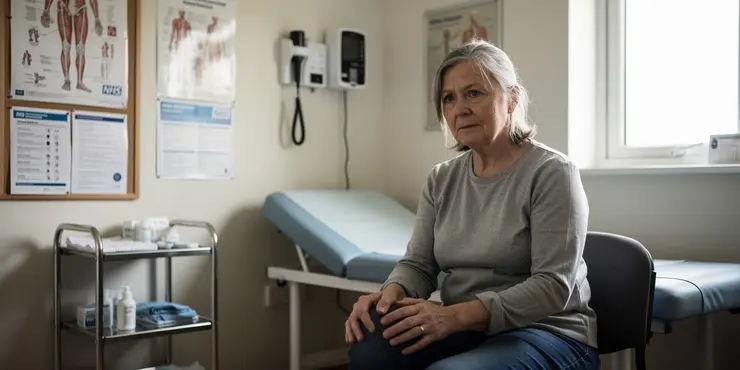
Osteoarthritis: Elaine's story | NHS
Relevance: 56%
-

Osteoarthritis: Elaine's story | NHS
Relevance: 56%
-
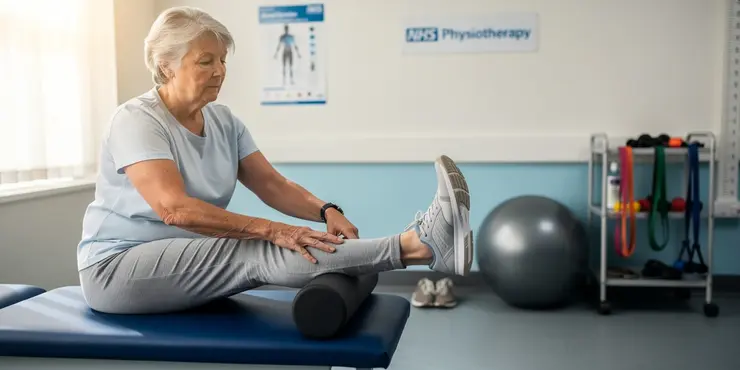
Part One: Understanding Osteoarthritis- MSK Physiotherapy
Relevance: 56%
-
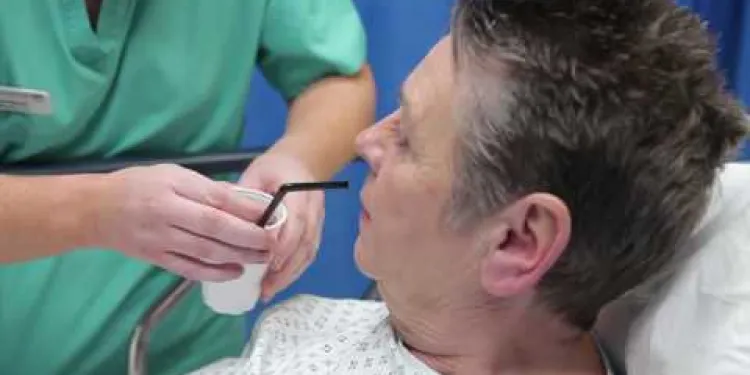
Hip replacement
Relevance: 55%
-
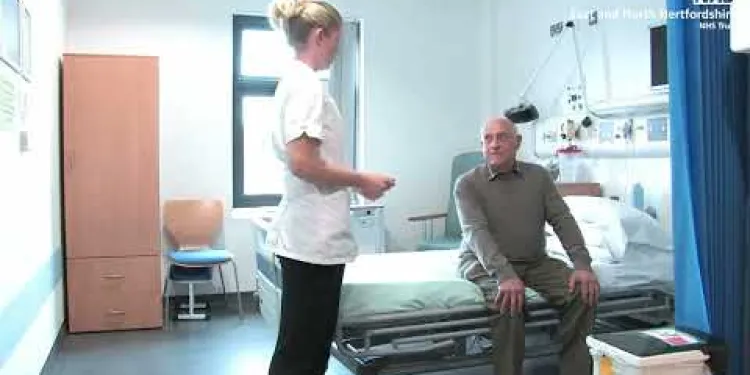
A journey to hip surgery
Relevance: 52%
-
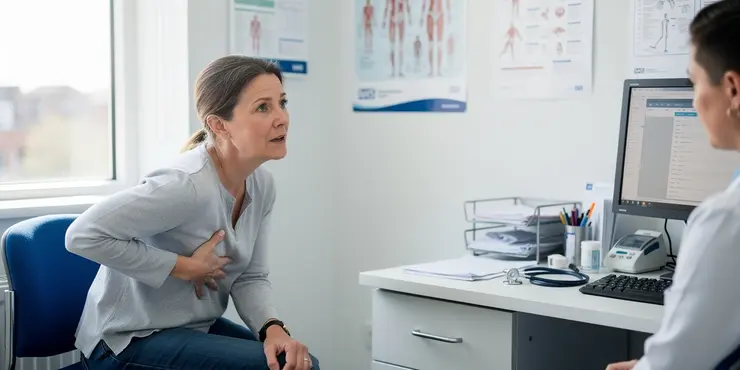
Do I need a Hip Replacement?
Relevance: 51%
-

Total Hip Replacement
Relevance: 50%
-
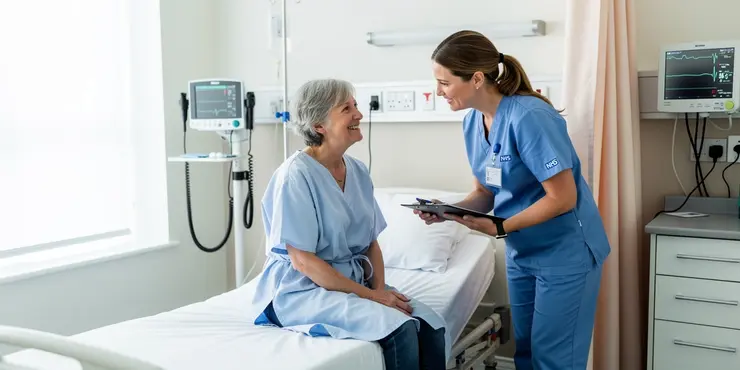
What is a hip replacement?
Relevance: 49%
-
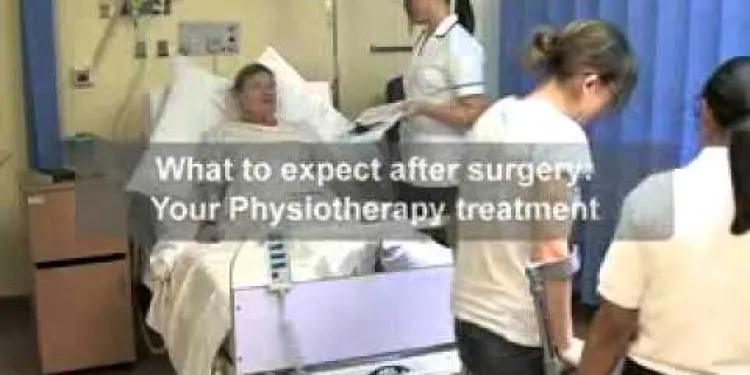
Total hip replacement
Relevance: 49%
-
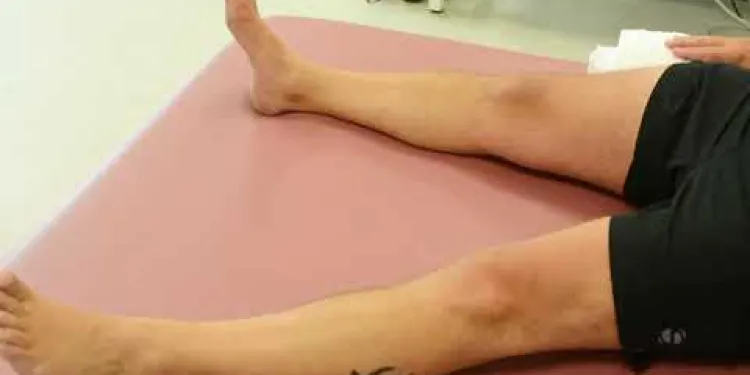
Joint School - Hip Exercises
Relevance: 42%
-
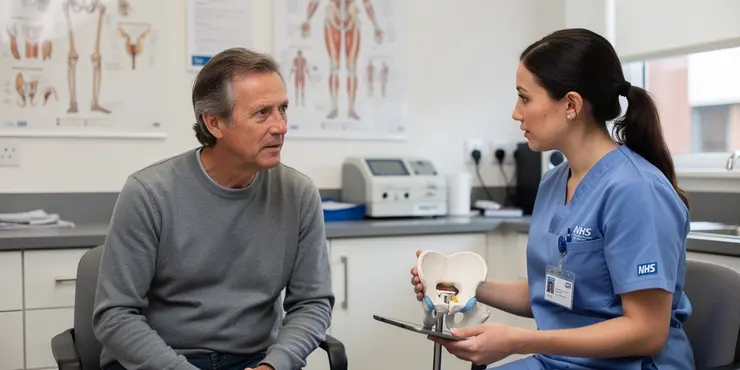
Are there different types of hip implants?
Relevance: 41%
-
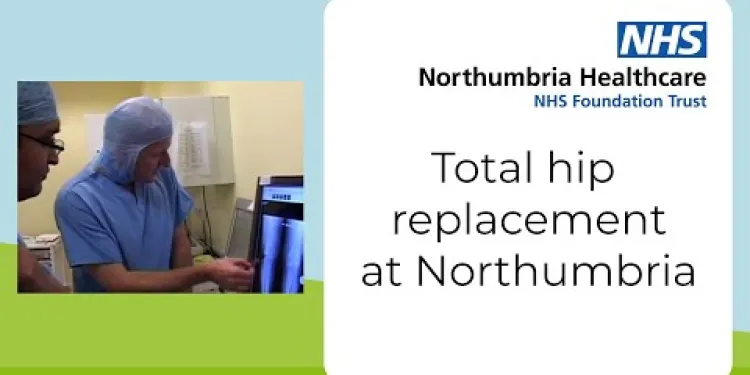
Total hip replacement at Northumbria Healthcare
Relevance: 39%
-
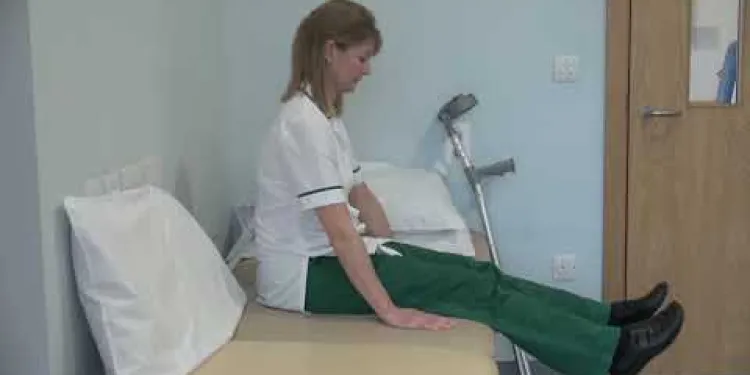
Hip replacement - getting into bed
Relevance: 39%
-
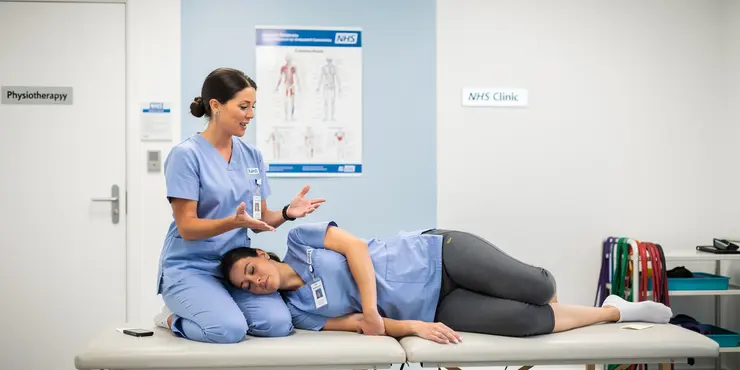
Exercises to help your lateral hip pain
Relevance: 39%
-
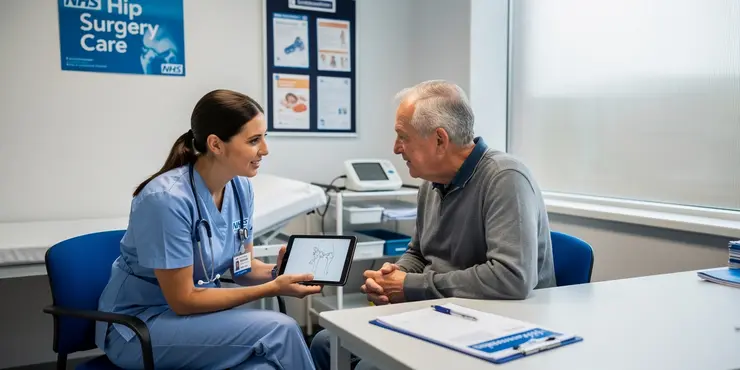
Enhanced Recovery - Hip
Relevance: 39%
-
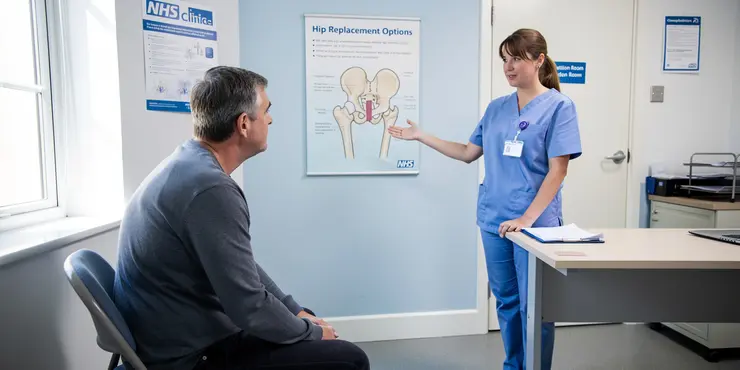
Can both hips be replaced at the same time?
Relevance: 39%
-
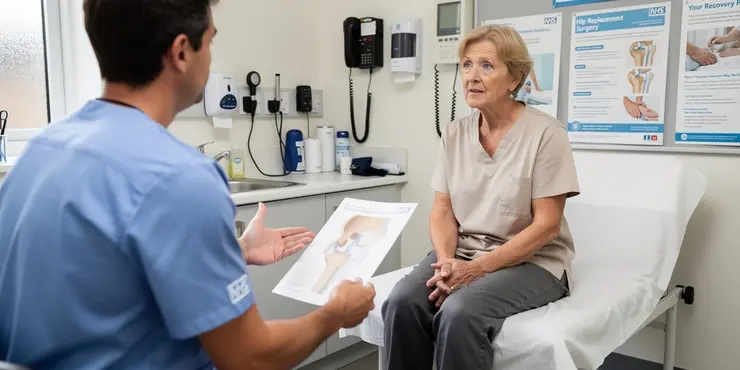
What is minimally invasive hip replacement surgery?
Relevance: 38%
-
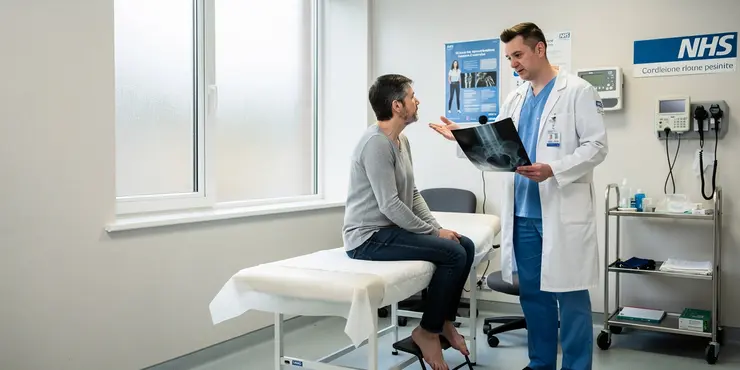
What are the risks associated with hip replacement surgery?
Relevance: 38%
-
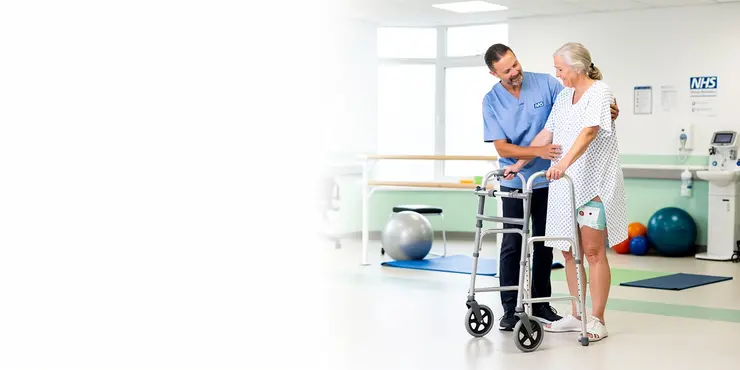
What is the recovery time for a hip replacement?
Relevance: 38%
-
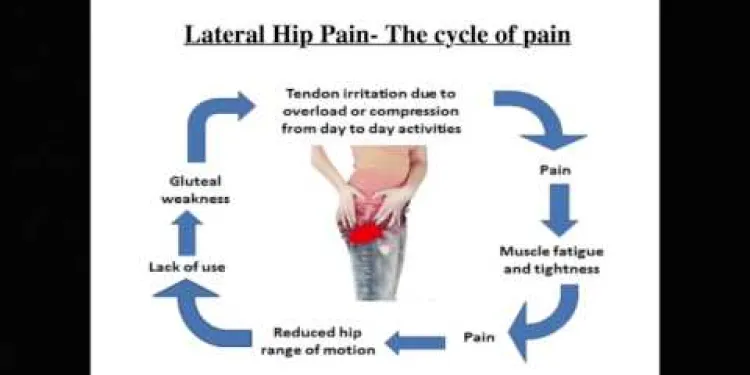
Advice - How to manage your lateral hip pain
Relevance: 37%
-
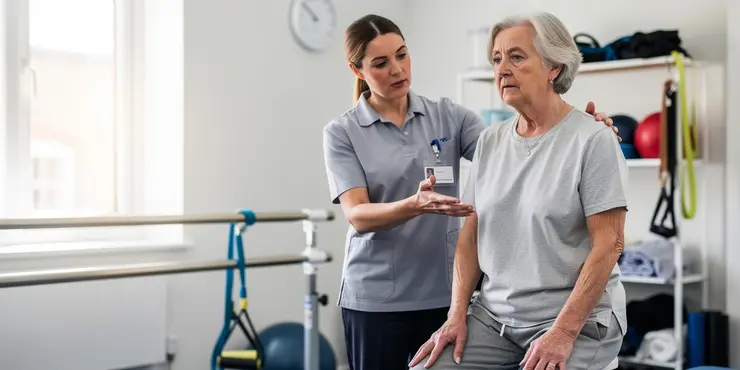
Will I need physical therapy after a hip replacement?
Relevance: 37%
-
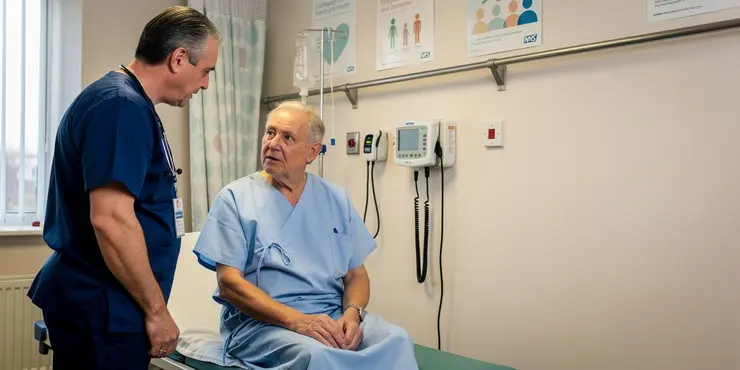
How long does a hip replacement surgery take?
Relevance: 37%
-
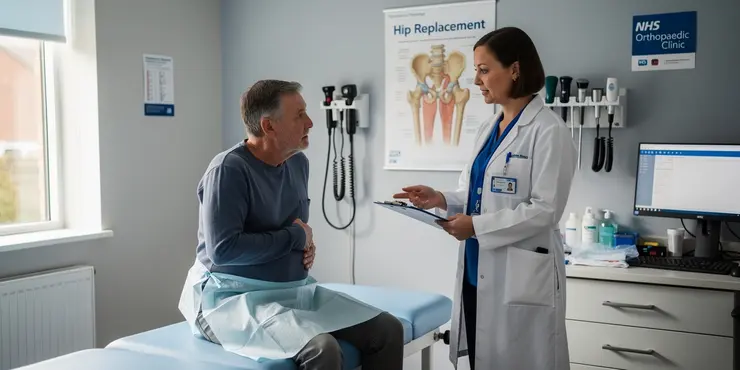
How much does hip replacement surgery cost in the UK?
Relevance: 35%
-
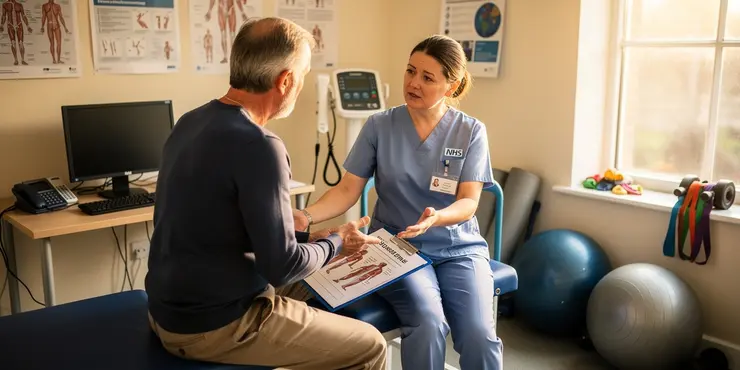
How do I prepare for hip replacement surgery?
Relevance: 35%
-
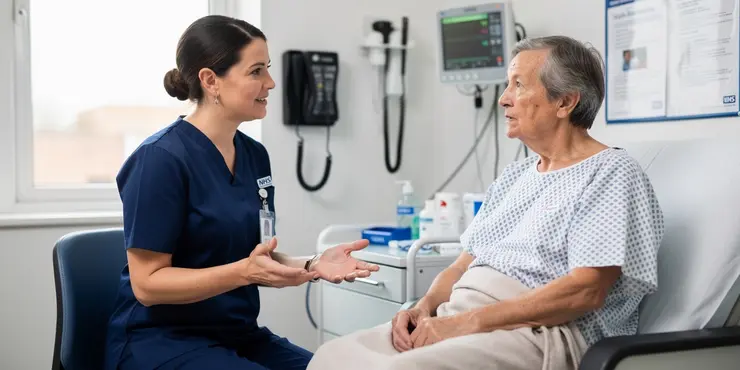
What type of anaesthesia is used during hip replacement surgery?
Relevance: 35%
-
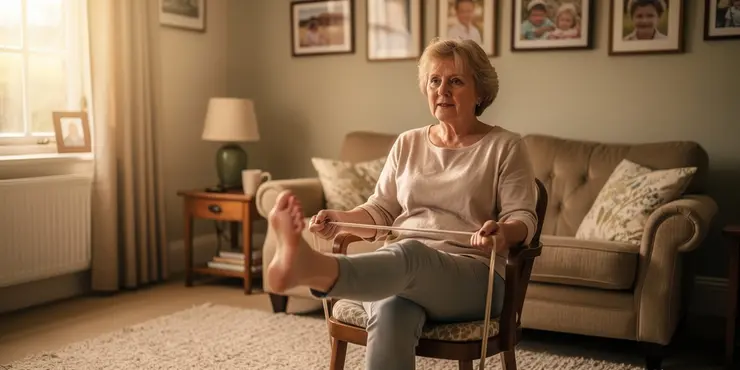
How long does it take to recover from a hip replacement operation?
Relevance: 34%
-
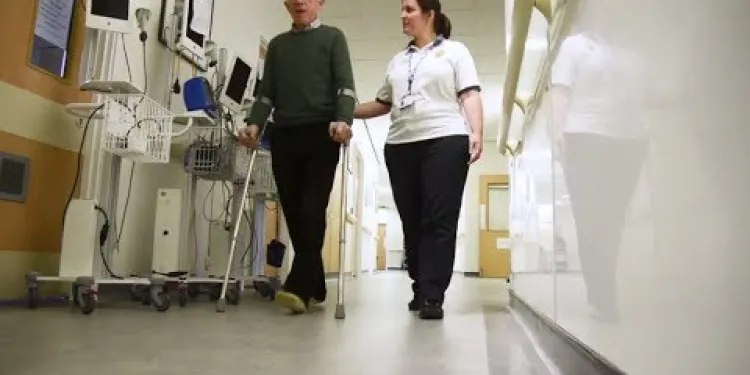
Having a hip replacement - Part Two: Recovery
Relevance: 31%
-
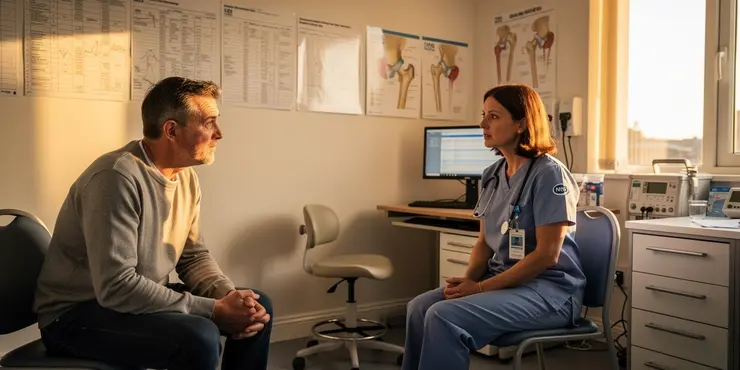
How long before hip replacement implants need replacing?
Relevance: 31%
-
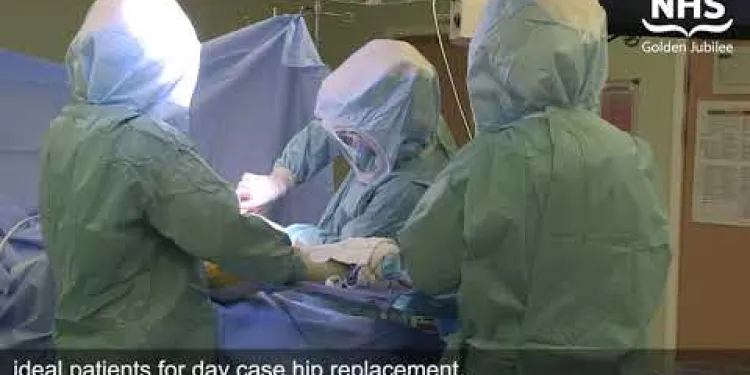
Same day discharge for NHS Golden Jubilee’s hip replacement patients
Relevance: 30%
-

Your anaesthetic choices for your planned hip or knee replacement surgery at the RUH.
Relevance: 29%
-
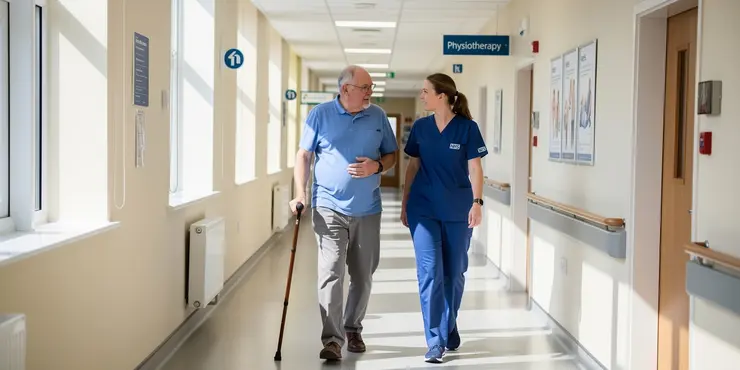
Will I be able to return to normal activities after hip replacement?
Relevance: 25%
-
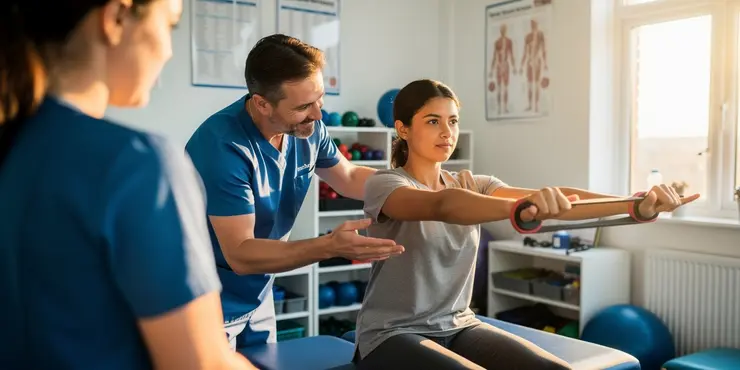
Greater trochanteric pain syndrome
Relevance: 23%
-
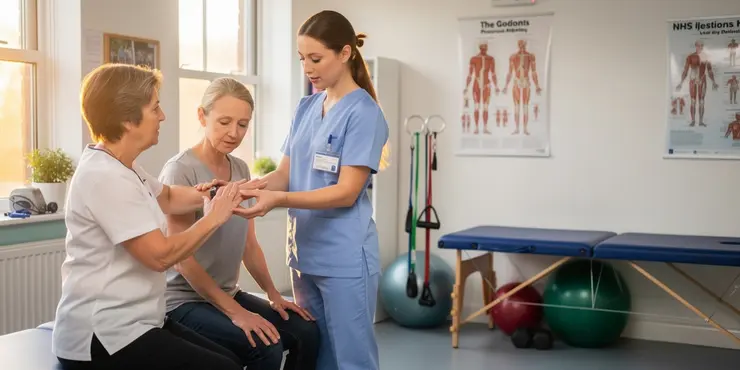
What can I expect during the first few weeks after hip replacement surgery?
Relevance: 22%
-
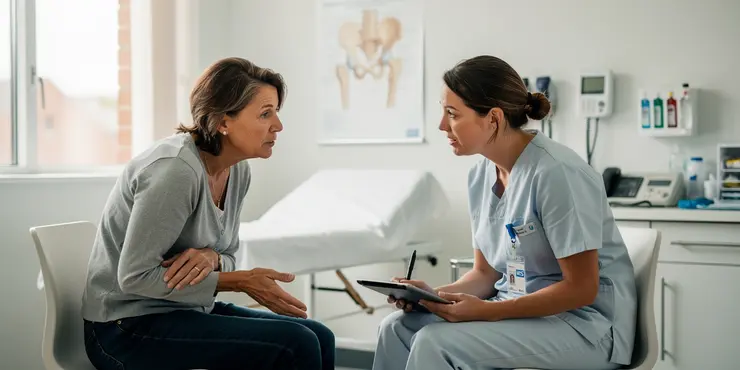
Who is a candidate for a hip replacement?
Relevance: 19%
-
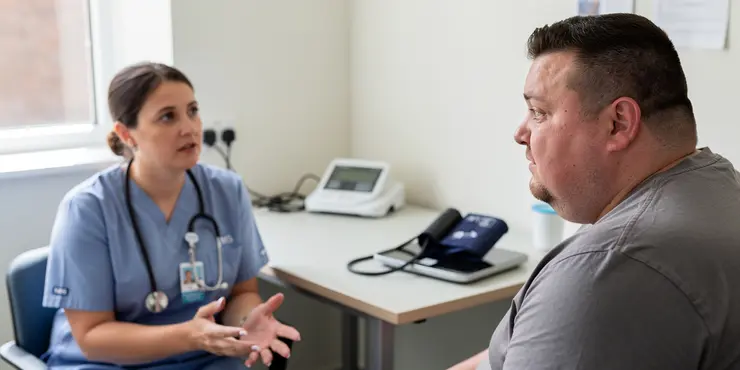
What health risks are associated with obesity?
Relevance: 18%
-

Rheumatoid arthritis | NHS
Relevance: 15%
-
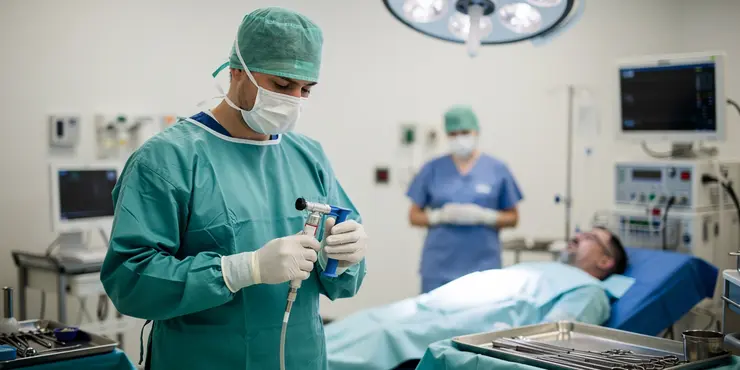
What is bone cement?
Relevance: 11%
Osteoarthritis of the Hip
What is Osteoarthritis of the Hip?
Osteoarthritis (OA) of the hip is a degenerative joint disease that primarily affects the cartilage, a smooth, slippery tissue covering the ends of bones in a joint. Over time, the cartilage deteriorates, causing pain, stiffness, and reduced mobility in the hip joint. It is a common condition, particularly among older adults in the United Kingdom.
Causes of Hip Osteoarthritis
The exact cause of hip OA is not always clear, but several factors can contribute to its development. These factors include age, genetics, hip injuries, obesity, and repetitive stress on the hip joint. People who have a family history of OA or who engage in high-impact activities are at a higher risk of developing the condition.
Symptoms of Hip Osteoarthritis
Common symptoms of hip osteoarthritis include:
- Persistent pain in the hip, groin, or thigh
- Stiffness and reduced range of motion
- Swelling around the hip joint
- Difficulty walking or performing daily activities
- A grating or grinding sensation when moving the hip
Treatment Options in the UK
Treatment for hip osteoarthritis focuses on relieving symptoms and improving joint function. Non-surgical options include:
- Medications such as pain relievers and anti-inflammatory drugs
- Physical therapy to strengthen muscles and improve flexibility
- Weight management to reduce stress on the hip joint
- Assistive devices like canes or walkers
In severe cases, surgical options like hip replacement or arthroscopy may be considered. The NHS provides a range of treatments and support for those affected by hip osteoarthritis.
Living with Osteoarthritis
Managing osteoarthritis of the hip involves a combination of medical treatment, lifestyle changes, and self-care strategies. Regular exercise, a healthy diet, and maintaining a healthy weight can significantly improve quality of life. Support from healthcare professionals, family, and community resources in the UK can also play a crucial role in managing the condition effectively.
Osteoarthritis of the Hip
What is Osteoarthritis of the Hip?
Osteoarthritis (OA) happens when the hip joint gets worn out. The hip joint has smooth tissue called cartilage that helps bones move easily. When this gets damaged, it can hurt and make it hard to move. It is common, especially for older people in the UK.
Causes of Hip Osteoarthritis
We do not always know why hip OA happens, but some things can make it more likely. These include getting older, family history, hip injuries, being very heavy, and doing hard activities often. People with family members who had OA or who do a lot of heavy activities might get it too.
Symptoms of Hip Osteoarthritis
Signs that someone might have hip OA are:
- Constant pain in the hip, groin, or upper leg
- Hip feels stiff and hard to move
- Hip area may look swollen
- Finding it hard to walk or do everyday jobs
- If your hip feels like it is grating or grinding
Treatment Options in the UK
To help with hip OA, you can do these things:
- Take medicine to ease pain
- Do exercises to make muscles stronger and more flexible
- Stay at a healthy weight to help your hip
- Use walking aids like a cane or walker
If it gets really bad, surgery like hip replacement might be needed. The NHS in the UK can help with different treatments for hip OA.
Living with Osteoarthritis
Living with hip OA means getting medical help and changing some habits. Exercise, eating healthy, and staying at a healthy weight can make life better. Healthcare workers, family, and community resources in the UK can support those with OA.
Frequently Asked Questions
What is osteoarthritis of the hip?
Osteoarthritis of the hip is a degenerative joint disease where the cartilage that cushions the ends of the bones in the hip joint wears down over time.
What are the common symptoms of hip osteoarthritis?
Common symptoms include pain in the hip joint, stiffness, decreased range of motion, and sometimes a grating sensation during movement.
Who is at risk for developing hip osteoarthritis?
Risk factors include aging, joint injury, obesity, genetics, and certain occupations that place stress on the hip joints.
How is hip osteoarthritis diagnosed?
Diagnosis typically involves a physical examination, review of symptoms, and imaging tests such as X-rays or MRI to assess joint damage.
What are the treatment options for hip osteoarthritis?
Treatment options include lifestyle changes, physical therapy, medications, and in severe cases, surgical options like hip replacement.
Can hip osteoarthritis be prevented?
While it can't be completely prevented, maintaining a healthy weight, staying active, and avoiding joint injuries can reduce the risk.
What types of exercises are recommended for hip osteoarthritis?
Low-impact exercises like swimming, walking, and cycling are recommended. Physical therapy can also provide tailored exercise plans.
Are there any medications that help with hip osteoarthritis?
Yes, over-the-counter pain relievers like paracetamol and NSAIDs, as well as prescribed medications, can help manage symptoms.
What role does diet play in managing hip osteoarthritis?
A balanced diet can help maintain a healthy weight, reducing stress on the hip joints. Some people find that anti-inflammatory foods can help manage symptoms.
Is hip replacement surgery a viable option?
Yes, hip replacement surgery is often recommended for severe cases of hip osteoarthritis when other treatments have failed to alleviate pain and improve mobility.
How long is the recovery period after hip replacement surgery?
Recovery can take several months, with most people resuming normal activities within 3 to 6 months. Physical therapy is typically required.
Are there any alternative treatments for hip osteoarthritis?
Some people find relief with acupuncture, herbal supplements, or other alternative therapies, but these should be discussed with a healthcare provider.
Can hip osteoarthritis affect other parts of the body?
Yes, compensating for hip pain can lead to issues in the lower back, knees, and other joints.
How does obesity impact hip osteoarthritis?
Obesity increases the stress on hip joints, accelerating cartilage wear and exacerbating symptoms of osteoarthritis.
What lifestyle changes can help manage hip osteoarthritis?
Activities like maintaining a healthy weight, staying active with low-impact exercises, using supportive footwear, and avoiding activities that stress the hip can help manage symptoms.
What is hip osteoarthritis?
Hip osteoarthritis is when the hip joint hurts and gets stiff. It happens when the slippery stuff on the bones wears out.
Here is an easy way to understand it:
- The hip joint is like a hinge that helps your leg move.
- Between the bones in the joint, there is a smooth layer called cartilage.
- This cartilage helps the bones move without rubbing too much.
- If the cartilage wears down, the bones can rub together and cause pain.
Tools that can help:
- Pictures: Seeing pictures or models of a hip joint can help you understand better.
- Videos: Watching a video can show how the hip moves and what happens with osteoarthritis.
- Ask questions: If you don't understand, ask someone to explain more.
Osteoarthritis of the hip is a disease that makes the joints in your hip wear out. Cartilage is a slippery stuff that helps bones in the hip move smoothly. Over time, this slippery stuff wears away, and it can be hard to move the hip.
If you find reading difficult, you can try using audiobooks or text-to-speech tools to help you understand better.
What signs show hip osteoarthritis?
Hip osteoarthritis is a problem with the hip joint. Here are signs to look for:
- Pain in the hip, groin, or thigh.
- Stiffness when moving the hip.
- Hip might hurt more in the morning or after sitting.
- Feeling hard to move or walk.
If you need help, you can:
- Ask a doctor or nurse.
- Use a walking stick or cane.
- Try simple exercises to help.
- Write notes to remember important things.
When your hip hurts, you might feel pain in the hip. It can feel stiff too. It's sometimes hard to move, and it can feel like it grinds when you move.
Who can get hip osteoarthritis?
Things that can make you more likely to have problems with your hips are:
- Getting older
- Hurting your joints
- Being overweight
- Family history
- Jobs that are hard on your hips
How do doctors find out if you have hip osteoarthritis?
To find out what is wrong, the doctor will:
1. Look at your body (physical check-up).
2. Talk about how you feel (look at your symptoms).
3. Take special pictures of your body, like X-rays or MRI, to see if your joints are hurt.
It's okay to ask for help if you don't understand something.
How can we help someone with hip arthritis feel better?
There are different ways to help with the problem. You can change how you live, get help from a physical therapist, take medicine, or if it's really bad, have surgery to replace your hip. Here are some ways to understand this better:
- Change how you live: This means eating healthy food and exercising gently.
- Physical therapy: A special person called a physical therapist can show you exercises to make you feel better.
- Medicine: Doctors can give you medicine that helps with pain.
- Surgery: If none of the other things work, doctors might change your hip to make it better.
Ask people you trust to help you understand. You can also use tools that read things out loud or show pictures.
Can we stop hip osteoarthritis?
Hip osteoarthritis is when your hip joint hurts and gets stiff. Here are some ways to help your hips:
- Stay active: Do some exercise, like walking or swimming.
- Eat healthy: Eat lots of fruits and veggies.
- Keep a healthy weight: This helps your hips feel better.
- Wear good shoes: Shoes that fit well help your legs and hips.
Sometimes, people might need extra help from a doctor or physiotherapist. They can show you exercises or give more advice. Using a walking stick or a cane might also help.
You can't stop it all the way, but you can do things to help. Keep a healthy weight, move around a lot, and try not to hurt your joints.
What exercises are good for sore hips?
If your hips hurt, try some exercises. They help you feel better. Here are some you can try:
- Walking: Go for short walks. Walking helps your hips move.
- Stretching: Gently stretch your legs and hips. This makes them feel good.
- Swimming: Swim or move in water. Water supports your body and is soft on your hips.
- Cycling: Ride a bike. It helps your hips to move without too much weight on them.
Always start slowly and stop if it hurts. Ask a grown-up or a doctor to help you. They can show you how to do exercises right. You can also look for videos or pictures that show you how.
It's good to do gentle exercises. You can try swimming, walking, or riding a bike. These are all nice and easy on the body. A physical therapist can also help. They can make a special exercise plan just for you.
Can medicine help with hip arthritis?
Yes, there is medicine that can help. It can make the pain in your hip feel better.
If you have hip arthritis, ask your doctor. They can tell you what medicine is good for you.
Sometimes it helps to use warm packs or do gentle stretches. These can make your hip feel better too.
Remember, always talk to a doctor before taking new medicine. They can help you stay safe.
Yes, you can take medicine from the shop, like paracetamol, to help with pain. There are other medicines called NSAIDs that help too. Sometimes, a doctor might give you special medicine.
How does food help with hip joint pain?
Eating the right foods can help if you have hip joint pain. Try to eat a balanced diet with lots of fruits, vegetables, and whole grains. These foods keep your body healthy.
Some people find that foods with omega-3 (like fish oil) can help with joint pain. Ask your doctor if this is good for you.
Exercise can also help your hips feel better. Walking, swimming, or stretching can be good exercises. Talk to a doctor or physical therapist about what is right for you.
Keeping a food diary can help you see what affects your hip pain. Write down what you eat and how you feel. This can help you and your doctor find the best diet for you.
Eating the right foods can help you stay at a healthy weight. This can make your hips feel better. Some foods might help if your hips hurt because they stop swelling. Swelling is when a body part gets bigger, redder, or maybe hotter because it’s hurt or sick.
Is a Hip Replacement a Good Idea?
Yes, doctors often suggest hip replacement surgery if your hip pain is really bad and other treatments have not helped you feel better or move easier.
How long does it take to get better after hip surgery?
When you have hip surgery, it takes time to get better.
Most people start to feel better after about 6 weeks.
By 3 months, many people can do most of their daily activities.
It might take up to a year to feel completely back to normal.
If you need help, you can use crutches or walkers to move around.
Make sure to follow the doctor's instructions and ask for help if you need it.
Getting better can take a few months. Most people start doing normal stuff again in 3 to 6 months. You will usually need to do special exercises to help your body get stronger.
Are there other ways to help hip arthritis?
Do you want to know about different ways to help your hip feel better if it hurts from arthritis? Here are some ideas that might help:
- Exercise: Moving your body can help make your hip stronger. Try simple exercises like walking or swimming.
- Healthy Eating: Eating good food can help your body feel better. Try to eat fruits, vegetables, and whole grains.
- Heat and Cold Packs: Putting something warm or cold on your hip might make it feel better. You can try a warm towel or a cold pack.
- Physical Therapy: A special teacher can show you exercises to help your hip move and feel better.
- Support Tools: Using a cane or special shoes can help you walk without much pain.
Remember, it's important to talk to a doctor if your hip hurts a lot.
Some people feel better when they try acupuncture, take herbal medicines, or use other different treatments. It is important to talk to a doctor before trying these.
Can Hip Osteoarthritis Hurt Other Parts of the Body?
Yes, hip osteoarthritis can make other parts of your body hurt.
If your hip is sore, you might walk differently. This can make your knee, back, or other hip hurt too.
Using a walking aid, like a cane, can help. A doctor or therapist can show you exercises to help.
Yes, when your hip hurts, it can make your back, knees, and other joints hurt too.
How does being very overweight affect hip joint pain?
Being very overweight can hurt your hips.
When someone is very heavy, it puts extra pressure on their hips.
This extra weight can make the hip joints wear out faster.
Here are some ways to help:
- Exercise each day. It helps your body stay strong.
- Eat healthy foods like fruits and vegetables.
- Ask a doctor for advice. They can help you feel better.
Being very overweight can make your hip joints hurt more. This can make the cushion between the bones wear out faster, causing more pain from a problem called osteoarthritis.
How can I make my hips feel better if I have arthritis?
If your hips hurt because of arthritis, there are things you can do to feel better. Here are some ideas:
- Move and Exercise: Try to do gentle exercises, like walking or swimming. This can help keep your hips strong.
- Eat Healthy: Eating fruits and vegetables is good for your body.
- Stay at a Healthy Weight: This can help reduce the pain in your hips.
- Use Support: Use a walking stick if you need extra help to walk.
- Rest When Needed: If your hips hurt, take a break and rest.
If you need help, talk to a doctor or a therapist. They can give you more tips to feel better.
Here are some things you can do to help with hip problems:
- Keep your body weight healthy.
- Do easy exercises like walking or swimming.
- Wear shoes that support your feet well.
- Don't do activities that hurt your hip.
These tips can help you feel better!
Useful Links
This website offers general information and is not a substitute for professional advice.
Always seek guidance from qualified professionals.
If you have any medical concerns or need urgent help, contact a healthcare professional or emergency services immediately.
Some of this content was generated with AI assistance. We’ve done our best to keep it accurate, helpful, and human-friendly.
- Ergsy carfully checks the information in the videos we provide here.
- Videos shown by Youtube after a video has completed, have NOT been reviewed by ERGSY.
- To view, click the arrow in centre of video.
- Most of the videos you find here will have subtitles and/or closed captions available.
- You may need to turn these on, and choose your preferred language.
- Go to the video you'd like to watch.
- If closed captions (CC) are available, settings will be visible on the bottom right of the video player.
- To turn on Captions, click settings .
- To turn off Captions, click settings again.
More Items From Ergsy search
-

Osteoarthritis of the Hip
Relevance: 100%
-

Osteoarthritis of the Hip
Relevance: 99%
-

Osteoarthritis: Elaine's story | NHS
Relevance: 60%
-

Osteoarthritis: Elaine's story | NHS
Relevance: 56%
-

Osteoarthritis: Elaine's story | NHS
Relevance: 56%
-

Part One: Understanding Osteoarthritis- MSK Physiotherapy
Relevance: 56%
-

Hip replacement
Relevance: 55%
-

A journey to hip surgery
Relevance: 52%
-

Do I need a Hip Replacement?
Relevance: 51%
-

Total Hip Replacement
Relevance: 50%
-

What is a hip replacement?
Relevance: 49%
-

Total hip replacement
Relevance: 49%
-

Joint School - Hip Exercises
Relevance: 42%
-

Are there different types of hip implants?
Relevance: 41%
-

Total hip replacement at Northumbria Healthcare
Relevance: 39%
-

Hip replacement - getting into bed
Relevance: 39%
-

Exercises to help your lateral hip pain
Relevance: 39%
-

Enhanced Recovery - Hip
Relevance: 39%
-

Can both hips be replaced at the same time?
Relevance: 39%
-

What is minimally invasive hip replacement surgery?
Relevance: 38%
-

What are the risks associated with hip replacement surgery?
Relevance: 38%
-

What is the recovery time for a hip replacement?
Relevance: 38%
-

Advice - How to manage your lateral hip pain
Relevance: 37%
-

Will I need physical therapy after a hip replacement?
Relevance: 37%
-

How long does a hip replacement surgery take?
Relevance: 37%
-

How much does hip replacement surgery cost in the UK?
Relevance: 35%
-

How do I prepare for hip replacement surgery?
Relevance: 35%
-

What type of anaesthesia is used during hip replacement surgery?
Relevance: 35%
-

How long does it take to recover from a hip replacement operation?
Relevance: 34%
-

Having a hip replacement - Part Two: Recovery
Relevance: 31%
-

How long before hip replacement implants need replacing?
Relevance: 31%
-

Same day discharge for NHS Golden Jubilee’s hip replacement patients
Relevance: 30%
-

Your anaesthetic choices for your planned hip or knee replacement surgery at the RUH.
Relevance: 29%
-

Will I be able to return to normal activities after hip replacement?
Relevance: 25%
-

Greater trochanteric pain syndrome
Relevance: 23%
-

What can I expect during the first few weeks after hip replacement surgery?
Relevance: 22%
-

Who is a candidate for a hip replacement?
Relevance: 19%
-

What health risks are associated with obesity?
Relevance: 18%
-

Rheumatoid arthritis | NHS
Relevance: 15%
-

What is bone cement?
Relevance: 11%


